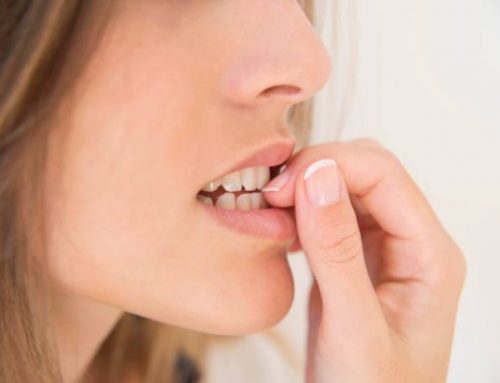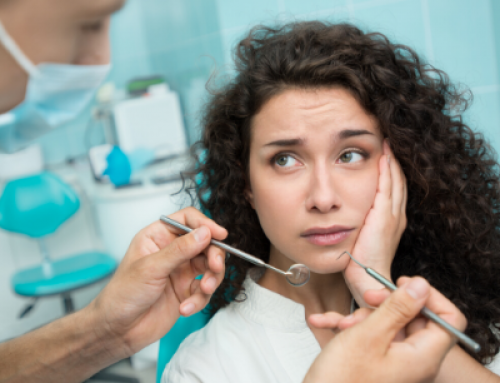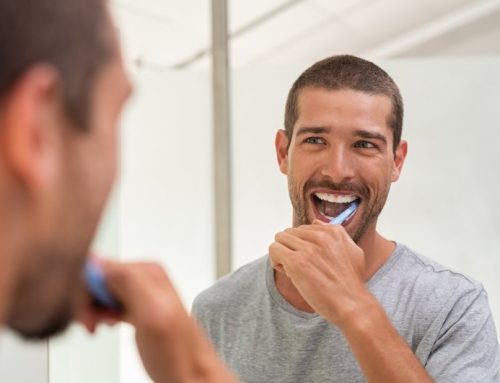 Everyone has bad breath sometimes, like first thing in the morning or after eating garlic or onions. But, if you are concerned that your breath is less than fresh most of the time, there are some simple ways to cure bad breath – or at least keep it to a healthy minimum – and improve your oral health at the same time.
Everyone has bad breath sometimes, like first thing in the morning or after eating garlic or onions. But, if you are concerned that your breath is less than fresh most of the time, there are some simple ways to cure bad breath – or at least keep it to a healthy minimum – and improve your oral health at the same time.
1. Look at your brushing and flossing routines
Everyone should brush at least for two minutes twice per day, and floss at least once per day. This is the minimum oral health routine recommended to keep your teeth and gums healthy and help to prevent plaque from building up. Plaque contains bacteria that cause tooth decay and gum disease – not to mention bad breath. So keeping your teeth and gums clean and healthy is a great way to cure bad breath.
2. Brush your tongue regularly
The coating on your tongue can host bacteria that cause bad breath. Gently brushing your tongue daily with a soft toothbrush is the best way to remove that coating and bacteria. Doing this at night after brushing your teeth can go a long way towards improving that morning breath!
3. Get in the habit of rinsing your mouth out with water
Rinsing your mouth out with water after eating helps to remove any trapped food particles which impact on your oral health and lead to bad breath. It’s an easy but effective way to freshen up your breath after a snack or meal. As a bonus, rinsing your mouth out after a cup of tea or coffee also helps to stop those caffeine stains from building up on your teeth.
4. Switch to sugarfree mints and chewing gum
Unfortunately, the bacteria in our mouths absolutely thrive on sugar. They use it to make acid which not only leads to bad breath but also tooth decay. So if you are having an after-meal mint make sure it is sugarfree. Chewing sugarless gum is an even better option, as the gum stimulates your mouth to produce saliva which is your mouth’s natural protection against plaque acids which cause bad breath and tooth decay.
5. See your dentist
If you are concerned about bad breath and haven’t seen your dentist or oral hygienist lately, make an appointment. They will assess your oral health and identify any causes for concern. An oral hygiene appointment gives your teeth an in-depth professional clean and descaling to remove any plaque build up that could be contributing to bad breath.
6. Avoid foods that cause bad breath
Many of us love foods that cause bad breath. Two of the biggest culprits, garlic and onions, are good for our overall health too. Unfortunately, brushing your teeth after eating these doesn’t actually remove their odour from your breath because the odour-causing elements they contain travel to your lungs via your bloodstream, where you breathe them out. So if you don’t want to limit your diet then be strategic about when you indulge in these foods and avoid them before meetings or social outings.
7. Stay hydrated
Dehydration affects your body in many ways, and one affect it has is to dry your mouth. This alters the pH of the mouth and leads to increased mouth odour. So staying hydrated is important as even slight dehydration can adversely affect your body. Take care particularly in hot weather, when exercising, or even if you generally drink a lot of caffeine throughout the day but don’t balance it with non-caffeinated drinks.
8. Using a daily mouthwash: good idea??
Actually, we generally advise against using a daily mouthwash. Good brushing and flossing habits are the best way to maintain fresh breath and good oral health. In addition, mouthwashes can work against the natural oral microorganisms in your mouth. These microorganisms are good for your health and eliminating them can cause more harm than good. Always check with your dentist before starting to use a mouthwash regularly.
Be aware that there are a plethora of products and recommendations for ways to cure bad breath on the internet. However, a good brushing and flossing routine is the best solution for bad breath. Before you waste your money on over-the-counter ‘odour cleansing’ tablets or dive into some home remedies that could do more harm than good, make sure you do your homework and consult with your dentist.




